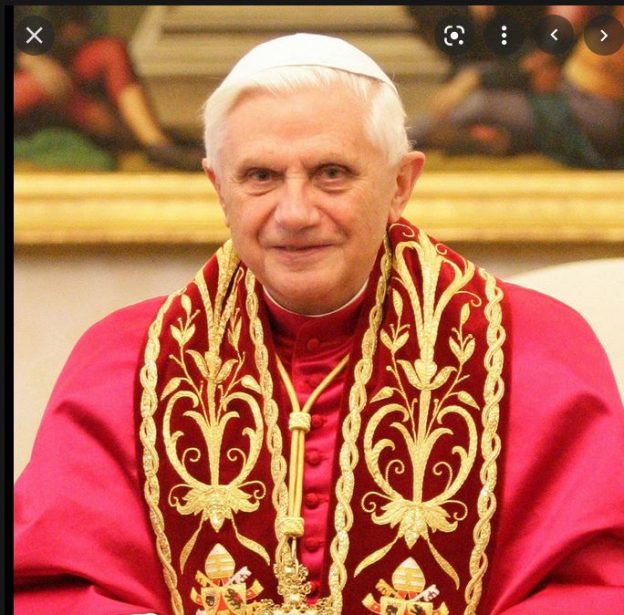Those capable of following a rational argument understood the significance and purpose of Pope Benedict XVI’s words at the University of Regensburg. He did not misspeak; he was not quoted out of context; and his controversial historical reference vis-à-vis the irrationality of Islam was not randomly selected or incidental to his central thesis (faith and reason). Although very much outside the consensus, the pope was as purposeful as he was plain spoken. That he was driven to retract the analytical truth at which he had arrived is an indictment of those who menaced him into a mea culpa.
In the riot-causing address, the Holy Father spoke of reason as a filament of the Christian faith. He went on to recount how the university formed a “universe of reason,” in which, through rational inquiry, even the existence of God was questioned. Very deliberately the pope then countered with an example of unreason raised by the “erudite Byzantine emperor Manuel II Paleologus,” circa 1391. The emperor had “brusquely” and “forcefully” confronted the irrationality of Jihad, in debates with “an educated Persian.”
Paleologus—whose words the pope credited with serving as a “starting-point” for his meditation on “faith and reason”—proffered that “spreading the faith through violence is something unreasonable, incompatible with the nature of God,” the implication being that a faith that so preaches and practices is both irrational and ungodly. “Whoever would lead someone to faith needs the ability to speak well and to reason properly, without violence and threats,” the emperor told his Persian interlocutor. Observed Pope Benedict: “The decisive statement in this argument against violent conversion is this: not to act in accordance with reason is contrary to God’s nature.”
The roots of Islamic irrationality run even deeper. In Muslim teaching, argued the pope, “God is absolutely transcendent. His will is not bound up with any of our categories, even that of rationality… God is not bound even by his own word, and … nothing would oblige him to reveal the truth to us.”
That Islam may be a closed and irrational system, impermeable to reform, has concerned this pope for some time. As a confidant recently put it, the issue for the Holy Father is how to deal with “a religion whose principle is based on God’s word—not on the words of men, but God’s word delivered directly to Mohammed—which can’t be interpreted, can’t be changed, can’t be adapted.”
That Islam counsels conquest, not coexistence, is ultimately what gives the pope pause.
The pope had previously expressed, also via proxy, his concerns over the survival of Christendom and the West in the face of a faith that doesn’t brook reason or reformation and is commanded to will the world to its ways. In January this year, Father Joseph Fessio, Provost of Ave Maria University in Naples, Florida, gave an interview to talk-show host Hugh Hewitt. During the exchange, he divulged that, since 1977, the pope and a close circle of companions and one-time students have been holding annual seminars of study and contemplation.
The 2005-seminar at the pope’s summer residence tackled “the Islamic concept of God and its consequences for a secular society.” In attendance were also a number of scholars of Islam.
Something quite unusual transpired when one of them, a Father Troll, offered his optimistic prescription: “Islam can enter into dialogue with modernity.” All it need do is “radically reinterpret the Qur’an”—excise legislation originating in seventh-century Arabia and still practiced there, such as cutting off a thief’s hand, keeping 4 wives, and treating half of humanity (women) as chattel.
Previously, the pope would always wait until his companions had their say. For the first time in Father Fessio’s memory, however, he interjected. According to Father Fessio’s rendition of the pope’s words, the problem with Islam was far more fundamental. As the Islamic tradition has it, the Qur’an is not Mohammed’s word; it is God’s eternal word, seen as something sent from Heaven, never to be adapted or altered.
In the Christian and Jewish texts, conversely, “God has worked through His creatures.” As a result, these texts are not just the word of God, but the words of men inspired by Him. Isaiah, Mark—and others of the “divinely appointed”—are fully authorized and adequately inspired to decipher and revive the faith.
Why does the pope worry so about Islam’s apparent theological dead-end? In Father Fessio’s telling, the answer lies in the torrential influx of North African Muslims into Europe. If current demographic and migrational trends persist, Muslims will soon form a majority on the Continent. The countries whence these Muslim immigrants come were once Christian. Now, however, Christians in Algeria, Morocco, Libya, and Egypt carry their bible on pain of death. And only one of the 98 Islamic countries in the world has religious freedom. The Holy See might not want to see the Vatican become number 99.
©2006 By Ilana Mercer
WorldNetDaily.com
September 22
CATEGORIES: Benedict XVI, Christianity, Islam, Jews & Judaism, Jihad, Reason, Religion & Faith

 print
print